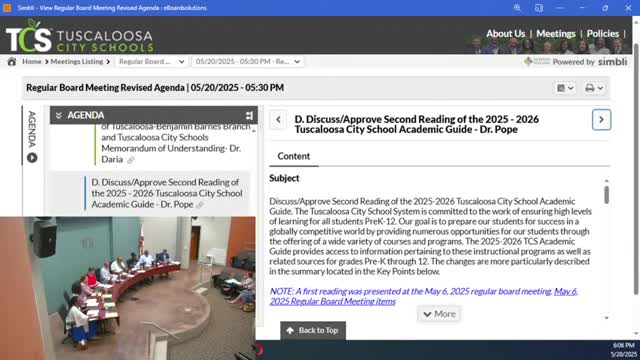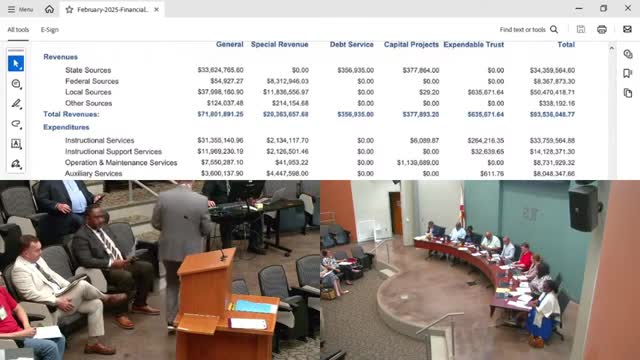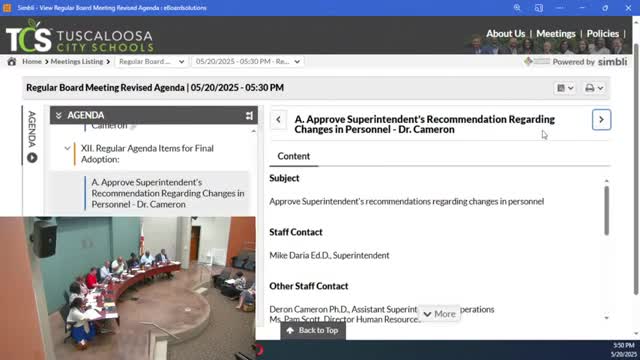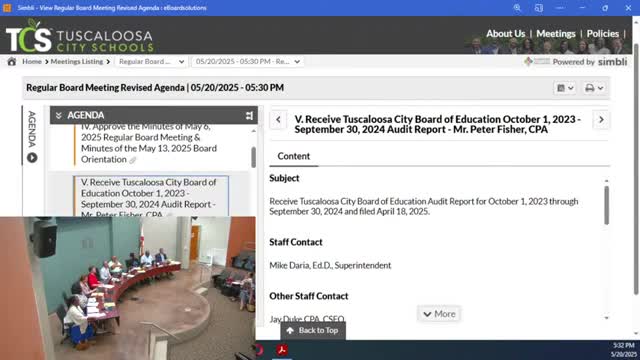Article not found
This article is no longer available. But don't worry—we've gathered other articles that discuss the same topic.

Tuscaloosa school board approves agenda, minutes, tech platform, community leases, academic guide and student code of conduct

Marvin Duane Lucas elected vice chair of Tuscaloosa school board by ballot

Tuscaloosa board approves personnel recommendations including nonrenewals; trustees, superintendent cite referendum loss as driver

